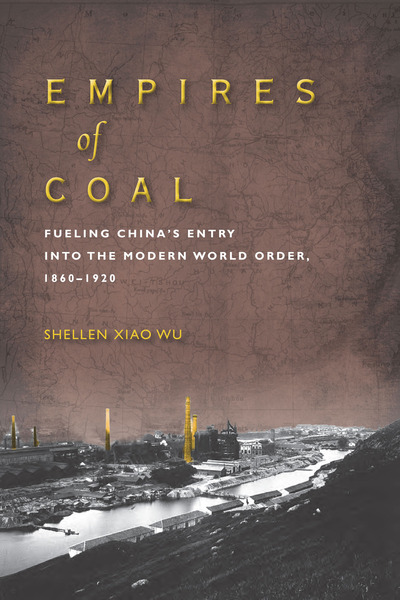
2015
280 pages.
from $28.00
Hardcover ISBN: 9780804792844
Paperback ISBN: 9781503610101
Ebook ISBN: 9780804794732
From 1868–1872, German geologist Ferdinand von Richthofen went on an expedition to China. His reports on what he found there would transform Western interest in China from the land of porcelain and tea to a repository of immense coal reserves. By the 1890s, European and American powers and the Qing state and local elites battled for control over the rights to these valuable mineral deposits. As coal went from a useful commodity to the essential fuel of industrialization, this vast natural resource would prove integral to the struggle for political control of China.
Geology served both as the handmaiden to European imperialism and the rallying point of Chinese resistance to Western encroachment. In the late nineteenth century both foreign powers and the Chinese viewed control over mineral resources as the key to modernization and industrialization. When the first China Geological Survey began work in the 1910s, conceptions of natural resources had already shifted, and the Qing state expanded its control over mining rights, setting the precedent for the subsequent Republican and People's Republic of China regimes.
In Empires of Coal, Shellen Xiao Wu argues that the changes specific to the late Qing were part of global trends in the nineteenth century, when the rise of science and industrialization destabilized global systems and caused widespread unrest and the toppling of ruling regimes around the world.
About the author
Shellen Xiao Wu is Assistant Professor of History at the University of Tennessee, Knoxville.
"Historian Wu has written a brilliant and original cultural history of industrialization in late Qing China . . . Thoroughly grounded in the archives and research in both Chinese and German sources (no mean feat), the book examines the powerful interactions of Chinese and Western entrepreneurs and Qing and Western officials in creating an industrial China . . . Highly recommended"
—J. Roger, CHOICE
"Shellen Wu's new book is a fascinating and timely contribution to the histories of China . . . Empires of Coal looks carefully at the importance of mining [...] to the political economy of late imperial China . . . It will be required reading for anyone interested in the entanglement of science, technology, and modernity in global history."
—Carla Nappi, New Books in East Asian Studies
"Refreshing and subtle, this book's engagement with issues of imperialism, China's relationship to European science, and environmental history provides a fascinating reminder of the tight linkages between them all."
—Joanna Waley-Cohen, NYU Shanghai
"This book narrates how, from the 1860s to the 1910s, China entered into a modern, industrializing world driven by fossil fuels. The topic could not carry greater contemporary relevance for China and the world, and only a few other historians have written on it in the past."
—Micah Muscolino, Oxford University
"Wu's study...places China's nineteenth-century development in a global context and adds comparative value to its historical experience."
—Joanna Waley-Cohen, The English Historical Review
"[An] interesting and important set of insights into the history of coal mining, coal imperialism, and the science and political economy of coal in China....[This study] adds a fascinating and novel layer of analysis of German imperialism and engineering at work in China...that has been missing in many of the wider discussions of imperialism and global transformations during the time period."
—Jack Patrick Hayes, Pacific Affairs